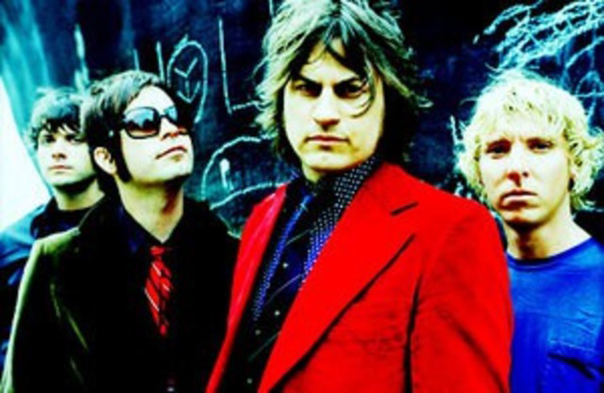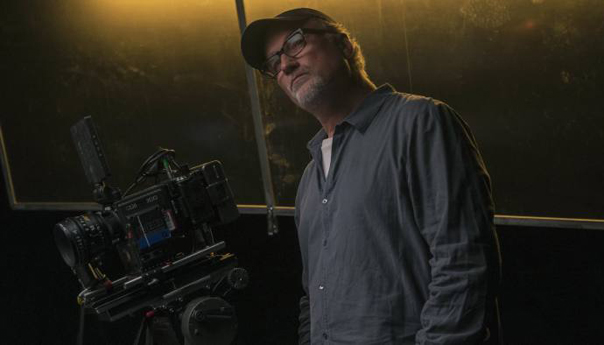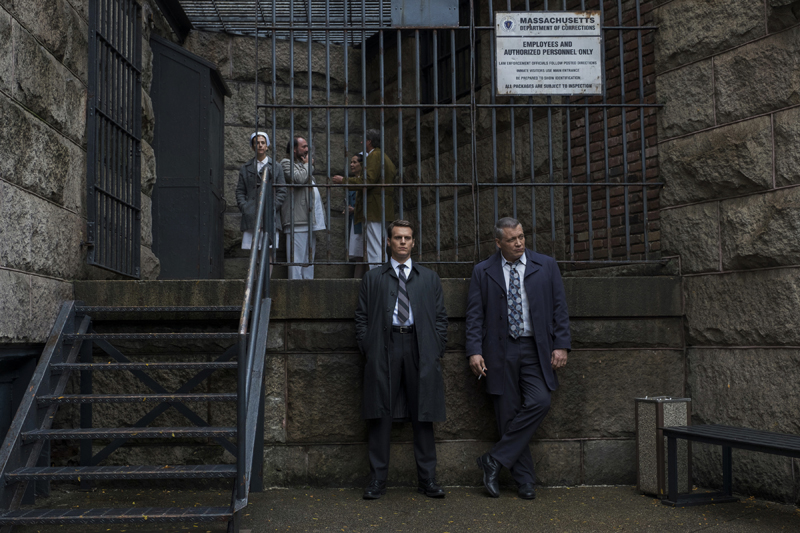‘MINDHUNTER:’ Inside the mind of composer, David Fincher collaborator Jason Hill
Louis XIV and Vicky Cryer frontman Jason Hill had just broken up with a girlfriend on a Friday and was wondering what he would do next. Two days later, he answered a phone call that would alter his career trajectory; one that would lead him to write music for director David Fincher, one of the brightest cinematic talents working today.
MINDHUNTER
This is the first in a two-part series about musician-producer-composer Jason Hill.
That partnership, now several years in the making, is bearing fruit with the acclaimed Netflix television series Mindhunter.
“I didn’t want to let [Fincher] down, or let even myself down,” Hill said in a recent call from his new, massive Los Angeles recording studio. “It was a huge opportunity and I wanted [the composition] to have its own voice. … If it ever sounds like anyone else, then you’ve failed.”
Fincher’s wife, Ceán Chaffin, was a fan of Hill’s previous work as a musician and producer. She called up the busy multi-hyphenate and offered Hill the opportunity to score the trailer for Gone Girl. Although Nine Inch Nails’ Trent Reznor and Atticus Ross composed the film’s score, Fincher wanted something different for the dark film’s trailer and teasers.
Fincher envisioned a noirish cover of Charles Aznavour’s 1974 song “She.” The song depicts a dysfunctional relationship, but you wouldn’t know it by listening to the syrupy rendition popularized by Elvis Costello for the 1999 film Notting Hill. Fincher wanted to restore the dreariness of the ‘70s hit, and for Hill, the reality of the song hit him with perfect timing.
Naturally, Hill impressed his downtrodden situation—his break-up—onto a project that resonated all too well, and with the help of the Psychedelic Furs’ Richard Butler’s haunting vocals, Hill created a cover that not only echoed the film’s storyline but his own emotional state. A perpetual working relationship with the film auteur was born.
Hill impressed Fincher with his work on the Gone Girl trailer, and Fincher offered him the chance to score another one of his projects, the HBO show Videosyncrasy. Unfortunately, production fell apart and the show never aired, leaving Hill devastated.
That’s when Fincher got another chance with a shot to direct a series about the proliferation of serial killers in the 1970s, for Netflix. The show: Mindhunter. He gave Jason Hill the opportunity to score this one as well, and the two worked closely together on the project.
Hill felt comfortable sending clips to Fincher at any time of day, and the director would respond within minutes, even if he was in the middle of shooting a scene.
“Sometimes [his response was] ‘I love this Jason,’ or ‘cool,’ or ‘super cool’ in all caps. I got this a lot, which was super great,” Hill said. “Other times, he would give me a very articulate response to something he didn’t like. Most of the time he was encouraging, and he would know that if something wasn’t right that I would find it in the end … Fincher is brilliant that way; he knows exactly what he wants and sticks to it.”
While Fincher usually holds steadfast to a concrete vision, he granted Hill an incredible amount of creative freedom, which was the perfect opportunity for Hill to reinvent himself. At that point in his music career, Hill was tired of traditional rock-oriented records.

Jason Hill with Louis XIV
Hill wields an organic approach to music making, one focused on reacting and listening.
“I like going in and having no idea what the fuck [I’m] going to play,” he said. “I like that element of surprise. I don’t like to connect the dots. I love that creation point, that birthplace, that genesis, that discovery.”
Having the opportunity to work with Fincher gave Hill a much-needed challenge and an avenue to learn a whole new set of new skills. It shows. The score for Mindhunter is devoid of anything Hill has shelled out in the past.
“I wanted to do something dark,” he said. “I wanted to be able to just swim in this moodiness, and that’s what I was able to do.”
While Mindhunter is eerily alluring, the secret ingredient beneath the show’s stewing pot of unnerving energy lies within Hill’s obscure musical score—a massively dark, ambient composition that perfectly echoes the show’s personality. Hill’s effort is ethereal, moody and ushers in melodies that range from sublime to downright cryptic. Each moment of the soundtrack whirs in and out, overloading the senses. The opening title sequence is a terrific example.
Hill’s goal was to soundtrack the visuals on screen. To him, the show is more of a psychological thriller than a gorefest. Viewers don’t see a murder committed. Instead, the stories focus on understanding the motivations in the actions and thoughts of others.
The Mindhunter soundtrack consists of relentlessly bleak, dark ambient soundscapes that create a sense of atmosphere and place. The ambient nature coaxes powerful visuals and a brooding sense of mood. Each zip, whir and subtle explosion of darkness experienced in Hill’s composition is meticulously playful, with each instrument reacting in ways no one thought was possible. This was Hill’s goal; he did not want a piano to sound like a piano or, even, a xylophone to sound like a xylophone.
“Part of my whole creative process with the show was figuring out combinations of weird things talking to each other,” he said. “I played on wine glasses … [and] the drum machine triggers [those], creating this whole weirder thing in a strange rhythm. But you wouldn’t know that is what’s happening. That’s what has inspired me to do this stuff. I like to build these combinations.”
Despite being relatively new to composing, Hill approached Mindhunter like his other songwriting, recording or producing undertakings. He aimed for a unique sound. For Hill, it was crucial to not sound like anybody else.
“I wanted the first couple of seconds of that score [to], if you were in the other room and it came on, to be unique and identifiable,” he said. “I think with some of the Louis records, we were able to do that.”

David Fincher on the set of Mindhunter
Hill studied a lot of Bernard Herrmann’s work with Alfred Hitchcock, namely, the score for Psycho, but finds many other scores boring and uninspired.
“I need[ed] to invent a world; something that wasn’t tangible—that was living in its own world,” Hill said.
Fincher helped steer Hill in that direction. While it took him a while to unearth the show’s unique voice, everything flowed outward and deviated onto paths Hill never really knew were possible until he finally did.
“It was like a bunch of paths and rabbit holes that you sort of start down,” he said. “You are running down this maze and you open up a door, and you find this beautiful room. It’s like, ‘That’s the room. [That’s] the sound of the show.’”
Although the search took some time, Fincher was instrumental in allowing Hill the room to find himself and the score’s singularity. As much acclaim as Mindhunter has received, Hill’s score deserves equal praise.
Now that work on the first season is complete, composing something as compelling may pose a tall task. Nevertheless, the busy Hill is already thinking ahead to the second season. Hill knows he has to shake things up a bit.

Still from “Mindhunter.” Courtesy: Netflix.
“I have a good idea of … where I want to take the score,” Hill said. “There are some sonic things that I hear in my head that I will probably vibe from. I can’t really explain it other than I know in my head what I’m thinking. I’ll bring aspects of [Motown] into the score, but with the same sonic characteristics; that sort of glistening aspect that the score has now.
“I think it will stay within the party and the sound that I sort of built. It will bring in new things. I never really know, and this is the part that I love about music.”
As Hill’s gears continue to turn, his direction remains fluid, and nothing is set in stone. In the meantime, his creative ambition for the next season will remain under wraps—and maybe it’s best it stays that way.
“Once I start reading scripts, it’ll start giving me ideas, and we’ll take it from there,” he said.
Editor Roman Gokhman contributed to this report. Follow writer Kyle Kohner at Twitter.com/kylejkohner.
